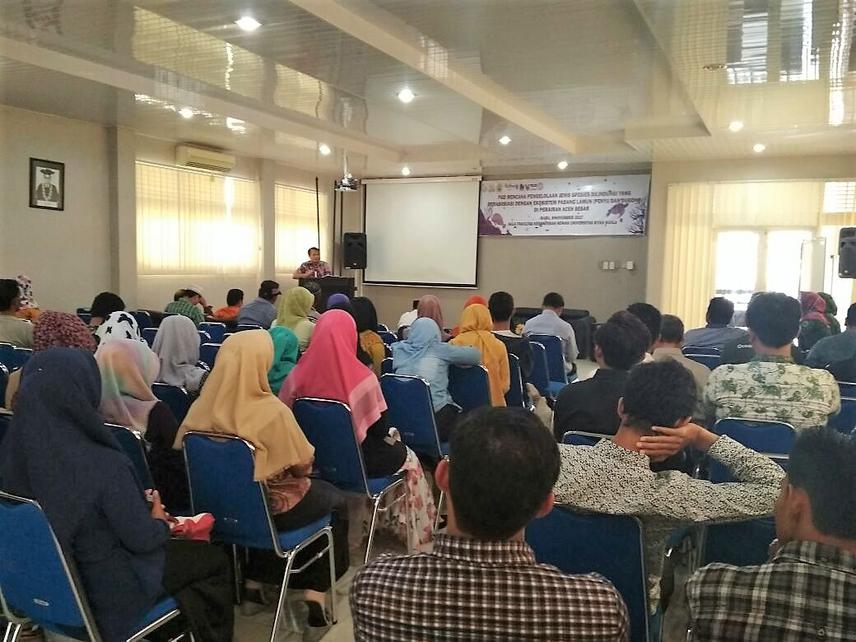Linda North
Other projects
2 Feb 2010
Environment Education and Awareness Raising through Community-Based Biodiversity Assessment in Conflict and Tsunami Affected Area of Ujung Pancu Peukanbada Aceh Besar NAD Province Indonesia
16 Sep 2016
Mapping of Endangered Marine Species in Aceh Besar and Marine Environment Education and Awareness Campaign in Schools and Student Groups on the Aceh Islands
The project aims to reduce use of destructive methods of fishing on reefs by capacity building local fishing commanders to set up marine protected areas and ban use of such methods.

In 2010, our first Rufford Grant enabled Lamjabat (YL) to support the Panglima Laot of Peukanbada (traditional fishing commander) to declare formally that the coastal waters would be a locally managed Marine Protected Area (MPA) with regulations and sanctions. Subsequently, the Regent of Aceh Besar district issued a decree so that MPA’s could be introduced all around its coastline. 5 neighbouring Panglimas saw the benefits of the MPA approach and asked for our support to do the same as Peukanbada.
Panglima Laots (traditional fishing commanders) only exist in Aceh, are outside of government system and chosen by the surrounding fishing villages Their role is to resolve disputes, advocate for resources to support the fishing community. They also have authority to make decisions over use of marine natural resources, fishing zones, types of boats, fishing methods and other activities permitted along the coast.
Setting up of a MPA is laid out in Indonesian legislation. There are various steps to follow where the panglima will need support. This project is a joint initiative where NGO’s, local & international, academics, students & government work together with the Panglima Laots to ensure locally managed sustainable conservation of eco-systems e.g. reefs, mangroves, sea grass & beaches to benefit marine life and fishing communities. The panglimas / Lamjabat / local experts survey eco-systems together to document conditions, habitats & marine life, identify threats & potential for restoration together so the Panglima can recognize the contribution eco-systems provide and the risk factors of continuous degradation.
There will be capacity building sessions for the panglimas on traditional and Indonesian marine law and how to monitor and manage a marine protected area. By increasing the capacity of the panglima laots they can create MPA’s where vulnerable eco- systems & marine life & habitats have some protection or plans are made for restoration. At the same time the needs of the wider community are still considered. 3 of the steps are public consultations where plans must be presented to the local communities and wider general public so they can give input. This is a bottom up approach promoting a medium to long term view for decision-making by the panglimas. Government bodies are included in this process so a spinoff is that they can also provide support of physical resources and have a greater understanding of the vulnerability of coastal communities and the natural resources they and wider community depend on.